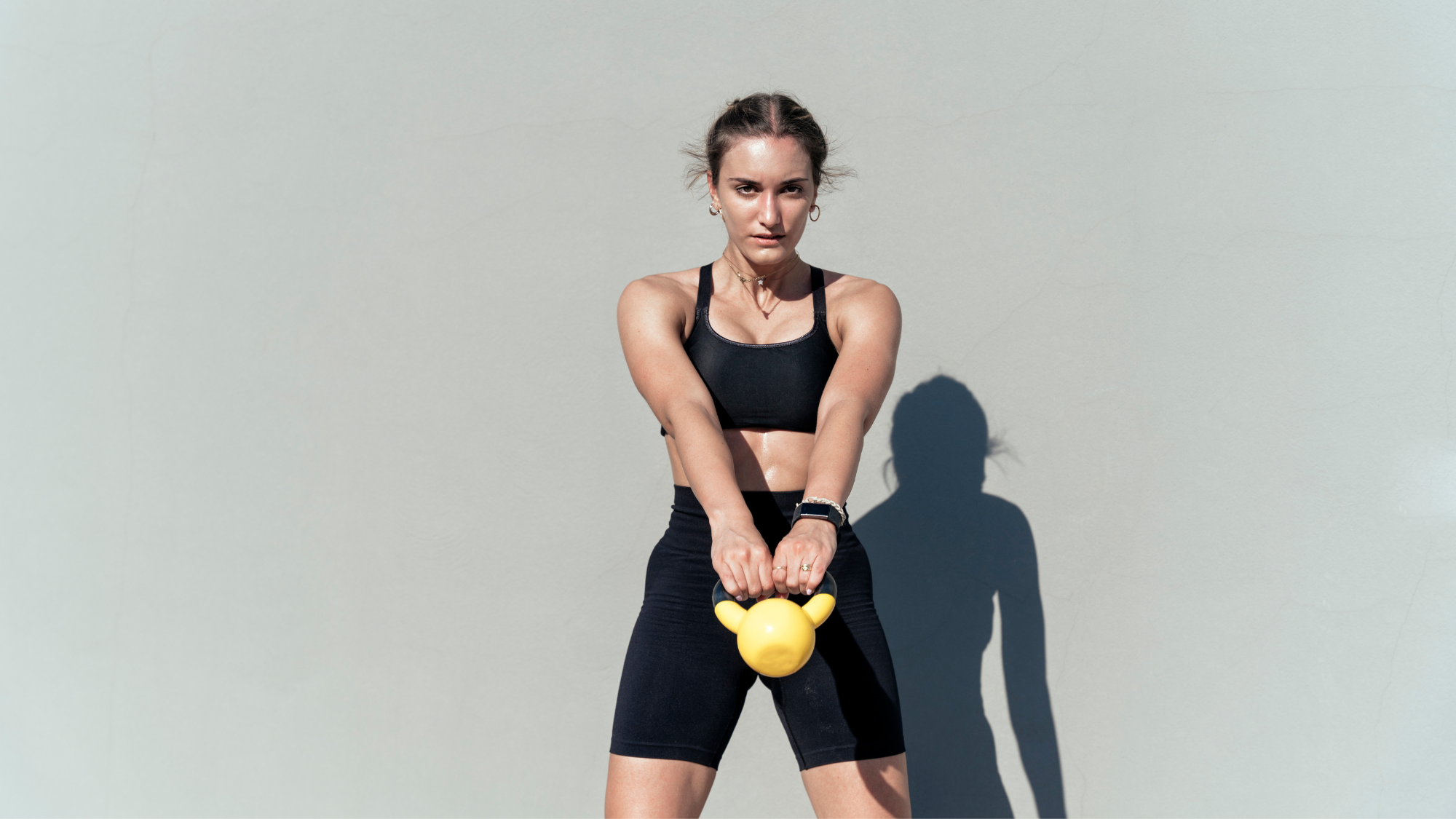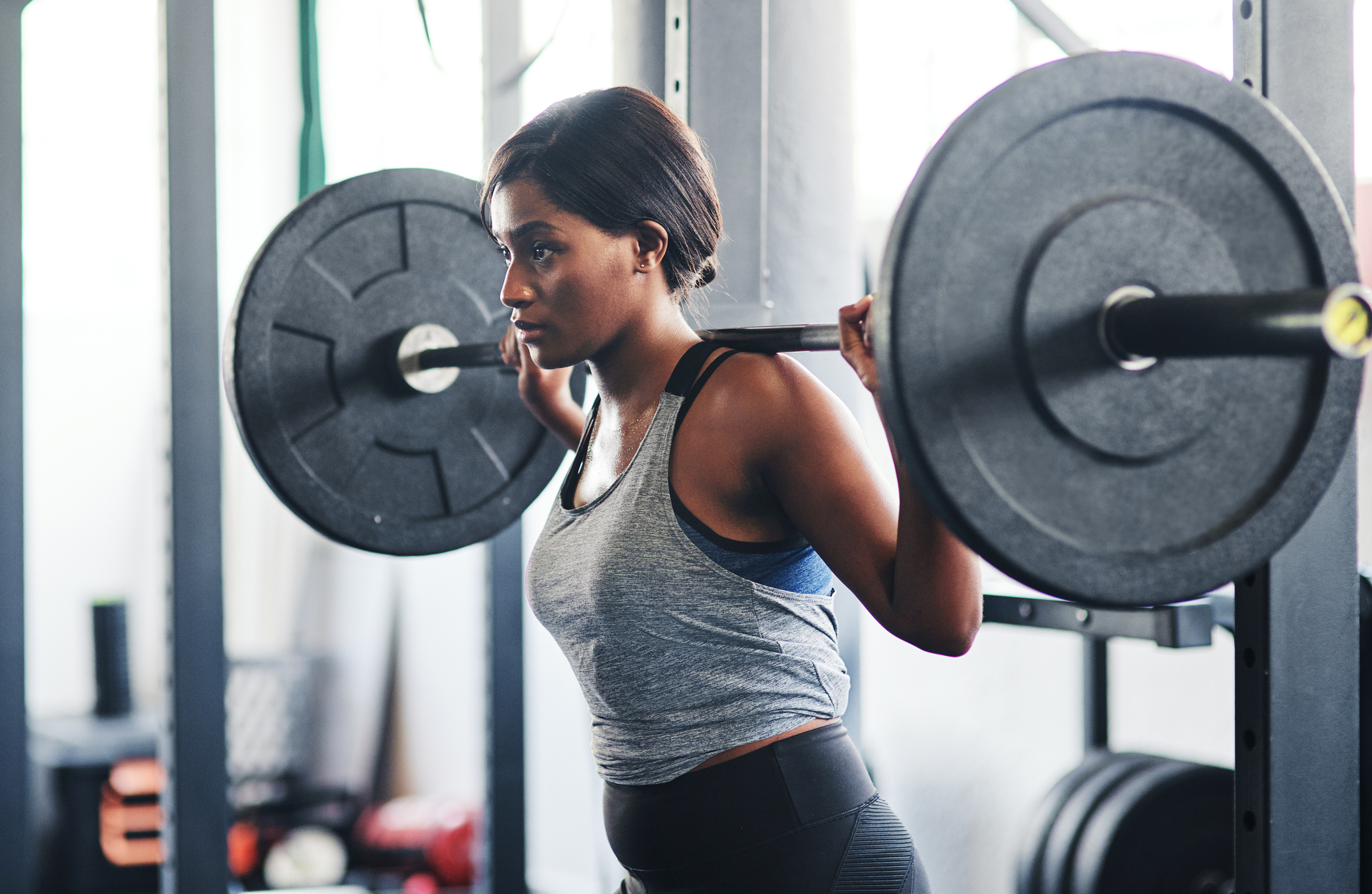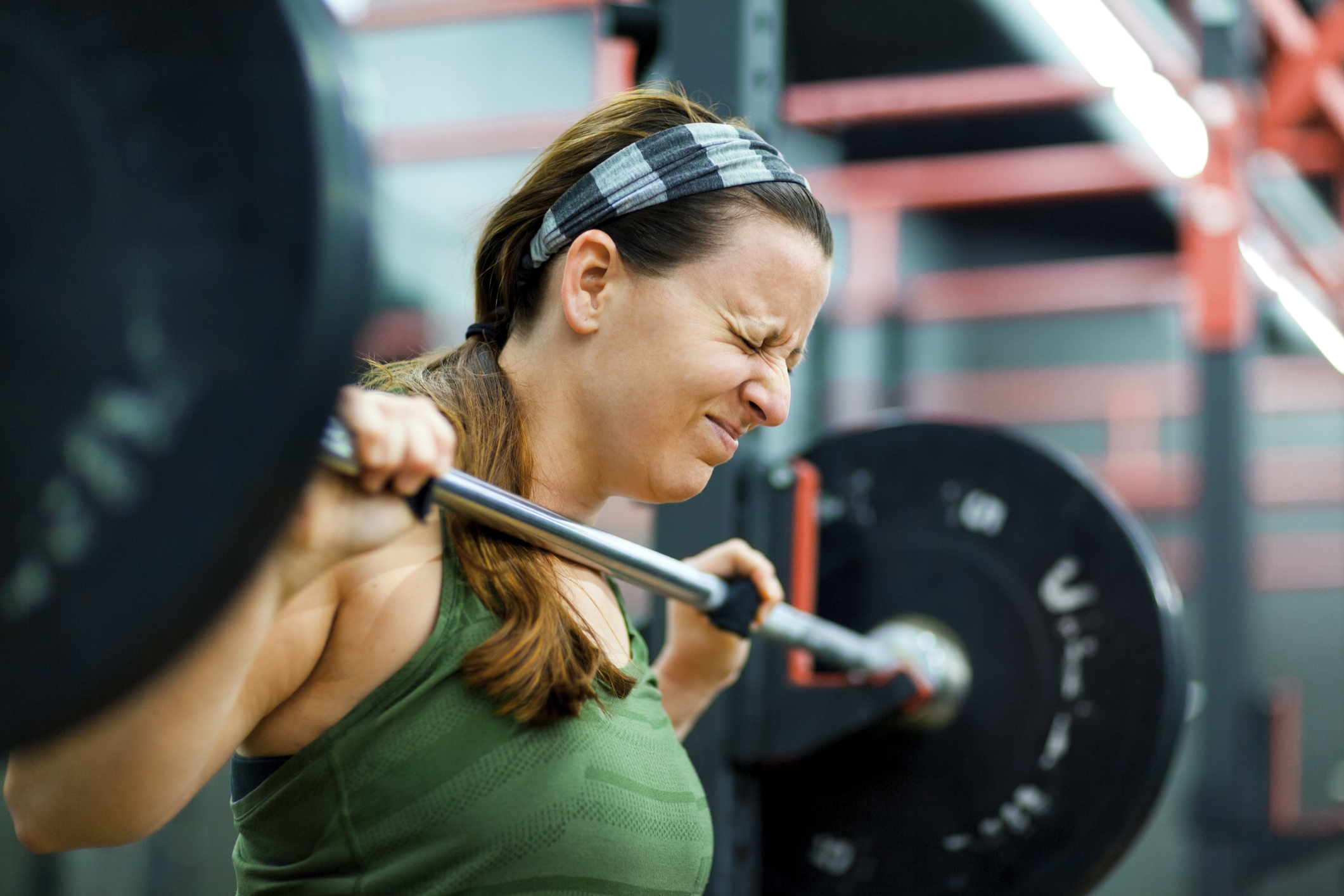New to strength training? This is how much weight you should start lifting at the gym
5kg or 15kg? Here's the expert-backed answer.

If you're ramping up your weight training or even starting out in the gym as a beginner, it can feel a little daunting. You might not understand the terminology - what are reps? And sets? You might not know which gym leggings will go see-through and which won't, and equally, you might not be sure on how much weight you should start lifting.
When you walk into the gym with rows and rows of dumbbells and barbells, it can be difficult to decide which weights are right for you. Too heavy and you may injure yourself, too light and you won’t see results - but what's most important is fitting in a workout that you enjoy and that boosts both your physical and mental health.
So where to begin? Well, we've been chatting to Dean Zweck, a personal trainer with over fifteen years of experience who now works at Total Fitness.
Keep scrolling for his top tips for how much weight you should start lifting - and don't miss our round-ups of the best gym classes, fitness tips, and gym workouts, while you're here.
How much weight should I start lifting? Your guide
Before we get started, know this - there are tonnes of benefits to incorporating resistance-based exercises and weightlifting into your workout routine, according to experts. "Whether you want to build strength, shift body fat or define your muscles, lifting weights is great for improving your overall fitness and wellbeing," Zweck explains.
According to one 2021 study, even three 30 minute sessions of resistance training a week is enough to potentially decrease risk of premature death from all causes by 10% to 20%. We're sold.
Nevertheless, knowing where to start with lifting weights can be, well, daunting, right? Especially for those who are new to using weights or working out altogether.
Celebrity news, beauty, fashion advice, and fascinating features, delivered straight to your inbox!
If lifting's not your thing then our explainers on the benefits of running, Barre benefits, yoga poses, and yoga for beginners might be more up your street, but for those who want to start training, keep reading.
How much weight should you start lifting as a beginner?
Keen to determine how heavy a weight you should opt for, and how this differs depending on what type of exercise you’re doing? You're in the right place. Try the following first:
1. Establish your fitness goals
First and foremost, the trainer shares that you should to establish what goal you are looking to achieve - do you want to build strength, improve muscle, or improve endurance? "This will help you decide how many repetitions of each exercise you should aim to complete," he shares. If you're not sure, do reach out to a professional in your gym - they're there to help, after all.
Looking to build strength? Opt for a low to medium number of reps per exercise, such as 1 to 8.
Looking to build muscle? Stick with a medium number of reps, from 8 to 15.
Looking to improve endurance? Opt for higher number of reps, such as 16 to 20.
Then you need to pick a weight that will challenge you within that rep range. Finding the sets tough is crucial "but don't make it so heavy that it compromises your form," Zweck shares. "This is when the risk of injury is more likely."
2. Understand the exercise
There isn’t a one-size-fits-all approach when it comes to weightlifting, shares the personal trainer. "You'll find that the range of weights you can lift varies quite significantly from one exercise to another," he goes on.
But most important is form. Always, always perfect the exercise using just your bodyweight first, then add weights that suit you.
Try this: before picking up your weights, consider what type of exercise you are doing and what muscles you are targeting. "Compound exercises, such as squats or chest presses, target more than one muscle group at a time. This means you can often use a heavier weight than you could whilst completing an exercise that specifically targets one area in isolation, such as a bicep curl," he goes on.
It’s no surprise, then, that larger muscle groups, such as your hamstring, glutes, and chest, can withstand higher levels of resistance. "Adapt your weight in accordance with this," he recommends. For example, don’t use the same weight for a shoulder press as you would a deadlift.

3. Use trial and error
While thinking about which muscles you're targeting, plus how many reps you're aiming to complete, you need to actually start picking up your dumbbells, kettlebells or loading up your barbell, advises the trainer. "Trial and error is key when it comes to finding the right weight for your workout, especially when you are new to lifting weights," he shares.
Try this: A general rule of thumb is to start reasonably light, such as 2kg to 5kg for upper body workouts and 8kg to 15kg for lower body workouts. "Try a couple of reps using a weight you think is appropriate for you and if you have no prior experience using weights, then start at the lower end of the range," he advises.
Not sure how to workout the "right" weight? See how completing the reps feels and how comfortable you are with the weight and movement, advises the expert. "If you think completing your set would be relatively easy with your current weight, then add on additional weight gradually or, if you are struggling to complete the first few reps you try, then opt for a lighter load."
Ultimately, you are aiming to use a weight that will fatigue your muscle fully by the end of your set, but not from the outset, he advises.
4. Keep pushing yourself
And finally, the right weight for you now may not be the right weight for you in a few weeks, or even in a few days, he emphasises. "When you train consistently, you will notice that you are able to increase your weight quite significantly, especially at the beginning of your fitness and weightlifting journey."
Keen to know when to up the weight you're lifting in the gym? Once you reach the point when the last few reps of your workout are feeling comfortable, it’s time to switch to a heavier weight, shares the expert.
Try this: A good habit to get into is to keep a journal and write down the reps you have done and weights you are using for each exercise, noting down how your body is responding to the workout. "If you can complete all your reps and feel ok in the next couple of days, it’s a signal to shift that weight up," he shares. Read our guide to wellness planners, if you're in the market.
Also note here: the PT reassures that there is no set time frame for when you need to shift to a heavier weight – the adaptation process for each person is completely different. "It’s important to listen to your body and not over-exert yourself unnecessarily," he stresses.

How much weight should you lift as a more advanced weightlifter?
This will depend on your fitness level to begin with. Take stock of what weight you've been lifting and aim for progressive overload every week - that is, slightly improving your lift week on week.
Say you're at a 40kg deadlift one week, aim for a small improvement of 2.5kg the next week for the same amount of reps for a new personal best of 42.5kg. That kind of progression will be slow but steady and make for more long term gains.

Ally is Marie Claire UK's Senior Health and Sustainability Editor, a well-regarded wellness expert, ten-time marathoner, and Boston Qualifying runner.
Utilising her impressive skillset and exceptional quality of writing, she pens investigative, review and first-person pieces that consistently demonstrate flair and originality.
As well as writing, Ally manages a team of freelancers, oversees all commissioning and strategy for her pillars, and spearheads the brand's annual Women in Sport covers, interviewing and shooting the likes of Mary Earps, Millie Bright, and Ilona Maher. Shortlisted for three BSMEs and winning one in 2022, Ally lives and breathes her verticals: her eye for a story and connections within the wellness sphere are unrivalled. Follow Ally on Instagram for more.
